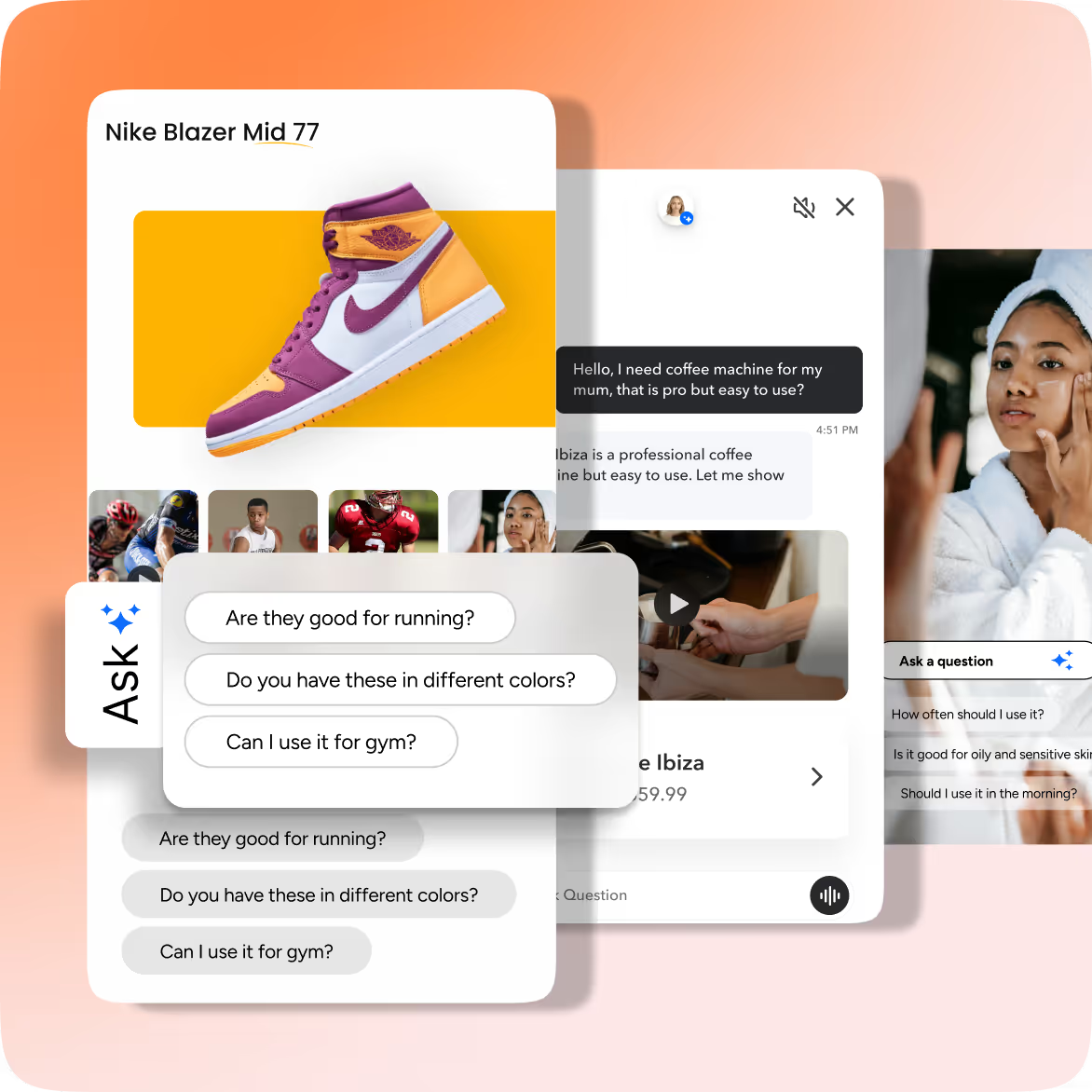Conversational commerce refers to the use of messaging apps and chatbots to facilitate online shopping experiences. This approach enhances customer engagement by allowing businesses to interact with consumers in real time, streamlining the purchasing process.
Understanding Conversational Commerce: A New Frontier in Retail
Conversational commerce is a form of e-commerce that allows customers to interact with businesses through messaging apps and chatbots. This provides a more natural and conversational way for customers to shop and get information.
Common platforms for conversational commerce include,
- Facebook Messenger
- Chatbots on websites.
These platforms offer a familiar and convenient way for customers to interact with brands.
Modern consumers demand instant communication and personalized shopping experiences. Conversational commerce meets these expectations by providing real-time responses and tailored recommendations.
The Benefits of Conversational Commerce for Businesses
Adopting conversational commerce can significantly enhance your business's efficiency and customer satisfaction.
Increased Engagement
Real-time communication keeps customers engaged and encourages immediate responses. By providing instant support and personalized recommendations, conversational commerce can create a more interactive and engaging shopping experience.
Higher Conversion Rates
Personalized conversations lead to a more seamless shopping experience, boosting sales. When customers feel valued and understood, they are more likely to make a purchase.
Cost-Effective Customer Support
Chatbots can handle a multitude of queries simultaneously, reducing the need for extensive support staff. This can help you save costs while providing excellent customer service.
How Conversational Commerce Enhances Customer Experience
Creating an exceptional customer experience is at the heart of conversational commerce. By providing personalized interactions, 24/7 support, and faster response times, conversational commerce can significantly enhance customer satisfaction.
Personalization
AI and machine learning enable businesses to provide tailored recommendations based on customer preferences. This personalized approach creates a more relevant and engaging shopping experience, increasing customer loyalty and satisfaction.
24/7 Availability
Chatbots provide round-the-clock support, ensuring customers can get assistance whenever they need it. This eliminates the frustration of waiting for customer service representatives and provides a more convenient shopping experience.
Faster Resolution Times
Instant messaging reduces the time customers spend waiting for answers, enhancing satisfaction. With conversational commerce, customers can get immediate responses to their questions, resolving issues quickly and efficiently.
By focusing on personalization, 24/7 availability, and faster resolution times, businesses can leverage conversational commerce to create a superior customer experience that sets them apart from the competition.
Implementing Conversational Commerce: Best Practices
To successfully integrate conversational commerce into your business strategy, it's essential to follow best practices.
- Choose the Right Platform: Assess your target audience to select the messaging platforms that best suit your needs. Different platforms have different demographics and features, so it's important to choose the ones that align with your target market and business goals.
- Utilize AI and Automation: Implement AI-driven chatbots to streamline responses and handle common inquiries efficiently. This can free up your human agents to focus on more complex tasks and provide a better customer experience.
- Train Your Team: Ensure that human representatives are trained to complement AI interactions, providing a seamless experience. By training your team to work effectively with chatbots, you can create a more cohesive and personalized customer experience.
The Role of AI in Conversational Commerce
Artificial intelligence (AI) is a driving force behind the effectiveness of conversational commerce. By leveraging AI, businesses can create more natural and engaging interactions with their customers.
Natural Language Processing (NLP)
NLP enables chatbots to understand and respond to human language, making interactions feel more natural. This helps to create a more personalized and human-like experience for customers.
Data-Driven Insights
AI analyzes customer data to provide businesses with actionable insights and improve strategies. By understanding customer preferences and behavior, businesses can tailor their messaging and offerings to meet their customers' needs.
Continuous Learning
AI systems can learn from interactions, continually improving their responses over time. This allows chatbots to become more sophisticated and provide more accurate and relevant information to customers.
Challenges of Conversational Commerce
While conversational commerce offers numerous benefits, businesses may face challenges during implementation.
- Technical Limitations: Not all businesses have the infrastructure to support advanced AI chatbots and messaging platforms. Implementing conversational commerce may require significant investment in technology and expertise.
- Customer Trust: Some consumers may be hesitant to engage with chatbots over human representatives. Building trust and ensuring a positive experience with chatbots is crucial for successful adoption.
- Maintaining Consistency: Ensuring that chatbots and human agents provide consistent messaging can be difficult. It's important to establish clear guidelines and training to maintain a consistent brand voice and avoid confusion for customers.
Future Trends in Conversational Commerce
As technology continues to evolve, we can expect to see new and exciting developments in this field.
- Integration with Voice Commerce: The rise of voice-activated devices like smart speakers will push conversational commerce into new realms. Voice-enabled shopping will provide a more natural and convenient way for customers to interact with brands.
- Enhanced Personalization: As AI advances, personalized interactions will become even more tailored and effective. Businesses can use AI to gather and analyze customer data, enabling them to offer highly personalized recommendations and experiences.
- Augmented Reality (AR): AR can enhance shopping experiences by allowing customers to visualize products in real time.
Real-World Examples of Conversational Commerce Success
Examining successful case studies can help illustrate the power of conversational commerce and how it can be effectively implemented in your business.
Sephora
Sephora utilizes chatbots to provide personalized product recommendations and assist with bookings. By leveraging AI, Sephora can offer customers tailored suggestions based on their preferences and purchase history, enhancing the shopping experience and driving sales.
H&M
H&M offers a chatbot that helps users find clothing styles based on their preferences. This chatbot provides a convenient and personalized way for customers to shop for clothing, streamlining the process and increasing engagement.
Domino's Pizza
Domino's Pizza allows customers to place orders through their preferred messaging platform, simplifying the ordering process. This innovative approach has made it easier for customers to order pizza and has contributed to Domino's success.
Elevate Your Conversational Commerce Strategy with Firework
To truly maximize the benefits of conversational commerce, consider incorporating innovative solutions from Firework. Our platform offers video commerce tools that enhance engagement and drive conversions, making your conversational strategy even more effective.
FAQs
What is meant by conversational commerce?
Conversational commerce refers to the use of messaging apps and chatbots to facilitate online shopping experiences. It allows businesses to interact with customers in real time, providing personalized recommendations and support throughout the purchasing process.
What is the difference between conversational commerce and social commerce?
While both involve using social media platforms for commerce, conversational commerce focuses specifically on using messaging apps and chatbots for direct interactions with customers, while social commerce may involve broader activities like advertising and community building.
What is a conversational business?
A conversational business is one that leverages conversational commerce to engage with customers and drive sales. These businesses use messaging apps and chatbots to provide personalized support, answer questions, and guide customers through the purchasing process.
What is the impact of conversational commerce?
Conversational commerce can improve customer satisfaction, increase engagement, and drive sales. By providing a more personalized and convenient shopping experience, businesses can build stronger relationships with their customers and differentiate themselves from competitors.
See Firework’s Shoppable Video in action! Preview on your site - https://preview.firework.com/
Unlock Exclusive Insights
By submitting this form, you agree to Firework's privacy policy and consent to receive personalized marketing communications. You can unsubscribe at any time.




























